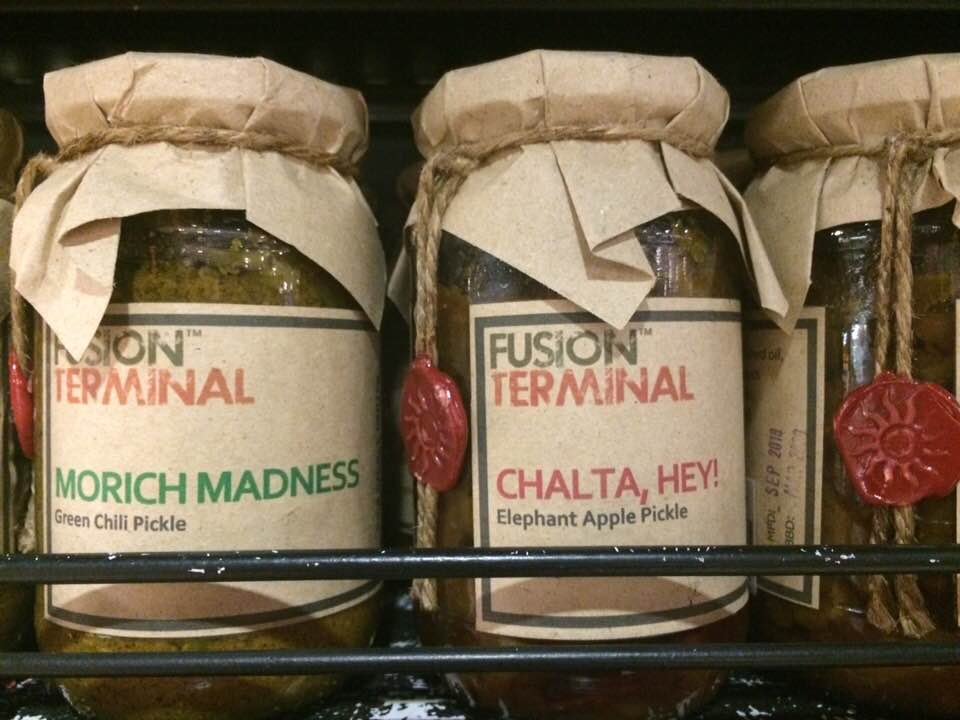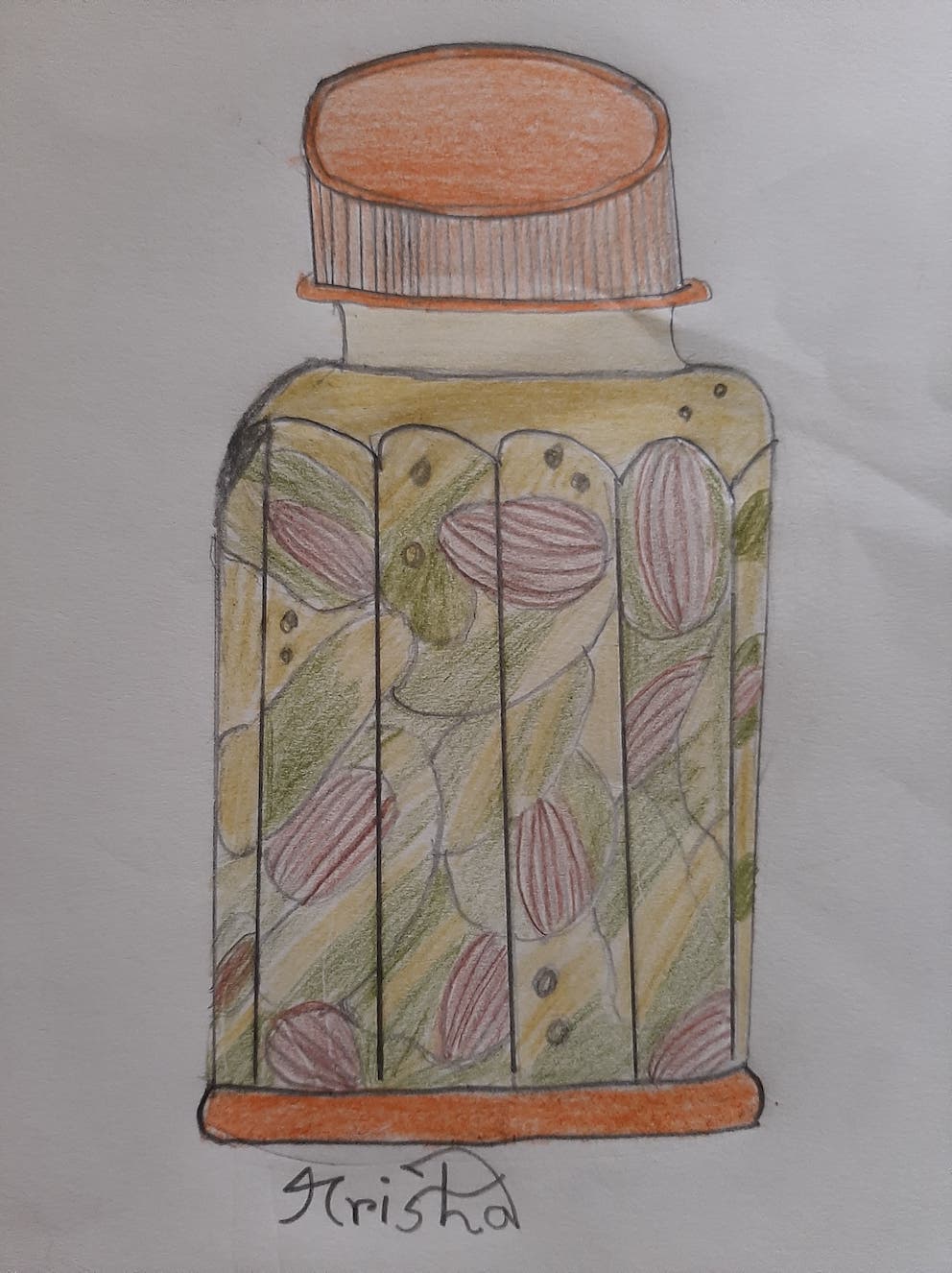Olive Pickles

With my knuckles,
I take out pickles.
They are tasty,
More than a pastry.
Made of olive,
Nice and solid.
My mouth fills with water,
How much, mother cannot measure.
____________________
Learning Activities
Vocabulary:
- The two words below come from the second 1000 high frequency General Service Word List. They are very common in English, so if you do not already know them you should learn them.
nice solid - The words below words are not high frequency words, so you may not meet them so often. However, you may like to learn them, especially if you are interested in food. Check the meaning of each word in the dictionary, then try to use each word in a sentence of your own.
Knuckles Olive Pastry Pickles Tasty
Comprehension Questions
- Does the writer of this poem like pickles? How do you know?
- What are “knuckles”?
- What does the writer mean when she says “my mouth fills with water”?
Critical Thinking Questions
- Analysing: How difficult is it to take pickles out of a jar or a bowl with your knuckles? If you think it is not possible, explain why you think the writer used the word ‘knuckles’ and not ‘fingers’ or ‘a fork’ or ‘a spoon’.
- Applying: Can you pick up any objects with any part of your body other than your hands? (E.g. Can you pick up your socks with your toes?) Do you think this is a useful skill to have? Why/Why not?
Try this game in two teams...
-
Find two small round objects (e.g. two round pieces of fruit, or two small balls such as tennis balls or cricket balls.)
-
Make two lines of people. There should be the same number of people in each line.
-
The first person at the front of the line should put the object on their right shoulder and balance it there.
-
When your teacher says “Go” the first person should try to pass the object to the second person without using their hands.
-
The second person should then pass the object to the third person, and so on, till the last person has it.
-
As each person finishes passing the object to the next person, they should sit down.
-
If the object is dropped during the game, the person who dropped it should pick it up with their hands and continue, but after successfully passing it to the next person, the person who dropped the object should go and stand at the end of the line and wait for another turn.
-
The first team that has everyone sitting down is the winning team
-
As each person passes the object to the next person, they should also say something they like to eat in English. (E.g. My name is _____ and I like eating _______________.)
It’s quite hard to think and speak in English while trying to pass something to another person without dropping it or touching it at the same time. Can you do it?
3. Evaluating: Write down some adjectives that you could use to describe pickles, and some different adjectives that describe pastries. (Think about things like their appearance, taste, size and price). Find a partner to practice speaking with in English. Using the adjectives that you have written down, tell you partner your opinion. Which do you like better, pickles or pastries? Why?

Illustration by Syeda Ariyana Hussain (Arisha)
4. Creating:
Find a recipe for pickles on the Internet in English, or ask someone to tell you their recipe. Make a list of the ingredients (i.e. all the different things you need to make the pickles).
Now, in your own words, and using English, write down each of the steps you need to take to make the pickles. When you have finished, put all your information onto a poster and add colourful drawings. (For one idea, take a look at Arisha's drawing above). Show your poster to your classmates and explain your recipe, in English.
Perhaps you could make a class recipe book and share your recipes with others. You could take a vote on the most delicious sounding pickle recipe, and even cook it to see how it really tastes!